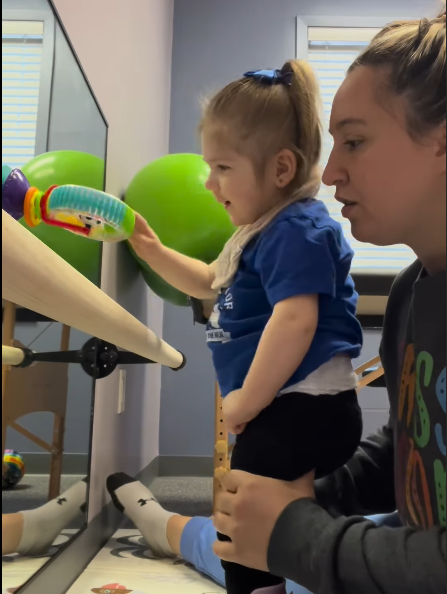Get Help Now
Kool Kidz is a family-owned, private clinic in Holmdel, NJ, offering holistic approaches to pediatric therapy. We take a comprehensive view of your child’s development, using evidence-based therapies and innovative techniques like Dynamic Movement Intervention (DMI) and Schroth Therapy. Our individualized care plans are designed to meet the specific needs of each child, ensuring they get the personalized attention they deserve.
Our specialized programs help improve your child’s balance, coordination, and motor skills, ensuring they can confidently explore and interact with the world around them.
Through targeted exercises and activities, we empower children to become more independent in daily tasks at home, school, and in social settings.
We create a fun, motivating environment that inspires children to stay engaged, try new things, and build self-esteem through every milestone.

Many parents find peace of mind knowing their child’s therapy is overseen by dedicated professionals in a supportive, child-friendly space. Don’t hesitate to reach out for answers and guidance.

We treat a wide range of conditions, including developmental delays, motor skill challenges, sensory processing issues, torticollis, and more. Our therapies are tailored to each child’s unique needs.
If your child is struggling with movement, coordination, fine motor skills, or everyday tasks such as dressing or feeding, it may be time to seek therapy. We recommend scheduling a consultation to assess your child’s specific needs.
During the first session, our therapist will conduct a thorough evaluation of your child’s abilities, discuss any concerns you may have, and create a personalized treatment plan. We focus on making the session comfortable and fun for your child.
Most major insurance plans do cover pediatric therapy. We offer free insurance verification to help you understand what is covered and discuss options for any uncovered services.
The length of therapy varies depending on your child’s needs and progress. Some children may benefit from short-term therapy, while others may require ongoing sessions. We continuously assess progress to adjust the treatment plan as necessary.
Our therapists will provide you with activities and exercises you can do at home to reinforce what your child is learning in therapy. Consistency and encouragement are key to supporting their progress.
If you notice your child is having difficulty with motor skills, sensory processing, or daily activities, it’s a good idea to consult a therapist. Early intervention can make a significant difference in their development.

Looking for reliable professionals to install a brand new gas fireplace or make sure your existing gas hob is running smoothly? Look no further than the skilled experts at Prime Plumbing. We are dedicated to providing top-notch service and ensuring your complete satisfaction with every job we undertake. Trust us for all your gas-related needs!Our team is well-equipped to handle a wide range of repair jobs, from minor faucet leaks to emergency situations.

Looking for reliable professionals to install a brand new gas fireplace or make sure your existing gas hob is running smoothly? Look no further than the skilled experts at Prime Plumbing. We are dedicated to providing top-notch service and ensuring your complete satisfaction with every job we undertake. Trust us for all your gas-related needs!Our team is well-equipped to handle a wide range of repair jobs, from minor faucet leaks to emergency situations.

Looking for reliable professionals to install a brand new gas fireplace or make sure your existing gas hob is running smoothly? Look no further than the skilled experts at Prime Plumbing. We are dedicated to providing top-notch service and ensuring your complete satisfaction with every job we undertake. Trust us for all your gas-related needs!Our team is well-equipped to handle a wide range of repair jobs, from minor faucet leaks to emergency situations.

At Kool Kidz, we make therapy fun and friendly for every kid! Our kid-savvy specialists are here to help your child reach new milestones in physical, occupational, and speech therapy—right in your community. Fill out our form below, and our super-friendly scheduling team will get in touch within 48 hours!
Get info and help via text for pediatric physical and occuptational therapy options.